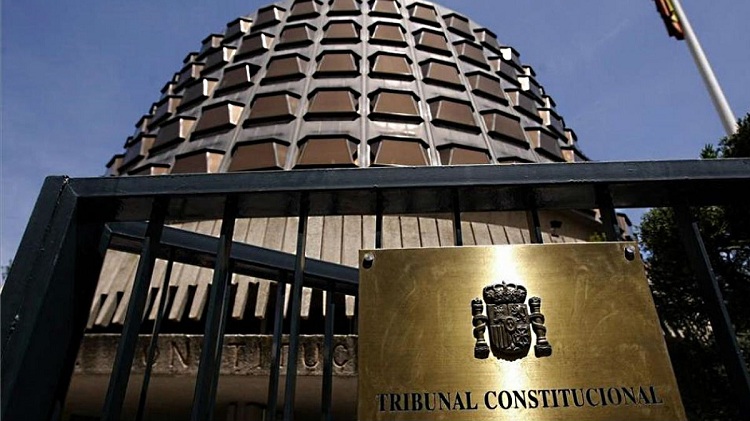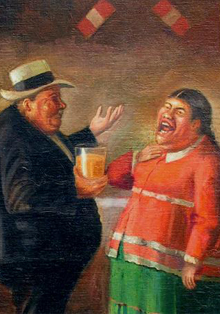Ángel Collado
Pedro Sánchez is normalising his clashes with the judiciary (Supreme Court and the Council of the Judicial Power) and with the main state bodies, from the Constitutional Court to the Audit Office and the Council of State. The episodic setbacks or clashes of all governments with institutional control bodies or the judiciary have become a habit for the PSOE’s coalition government with the extreme left of Podemos.
The presidentialism of the current tenant of the Palace of La Moncloa, his determination to govern by decree, plus his favours for the pro-independence supporters (from the outset, on the edge of the law) clash with the rest of the powers of the state.
Now that the TC has revoked the first state of alarm issued at the start of the pandemic, the government is already preparing to accept the annulment of the subsequent six-month extension granted to lighten parliamentary control, and also that of the delegation of powers to the autonomous communities in this area. It was the last decree with which Sánchez ended up distancing himself from the direct management of the Covid health crisis.
The calendars of the Constitutional Court and the Supreme Court are marked for the remainder of the year with appointments that will put the Government in trouble, no matter how willing it is to evade any political responsibility, as it has done in the face of the latest ruling by the TC.
From September onwards, the Supreme Court will hear the opposition parties’ appeals against the pardons granted to the heads of the pro-independence parties convicted of sedition and embezzlement. Oriol Junqueras and the other beneficiaries of the pardon boast of their victory over “the Spanish state” and reiterate their goal of breaking up the nation in order to proclaim a Catalan republic of their own.
In addition to returning to the case of the released coup leaders who threaten to repeat the same crimes, the highest court is scheduled to rule in October on the legality of the appointment of the state attorney general, Sánchez’s former minister María Dolores Delgado.
And the Catalan Generalitat government’s manoeuvre to pass on to the courts the fines that the Court of Auditors is going to impose on the same separatist leaders for embezzling public funds in the 2017 secession attempt will also reach the courts. The favour that Sánchez’s government will do this time to its pro-independence allies consists of not fulfilling its obligations to appeal the manifest illegality: setting up a fund to finance the penalties for politicians who break the law.
The Court of Auditors, the highest state audit body whose members are elected by the Spanish parliament by a three-fifths majority, has already noted the president’s resentment at the fact that he fined his allies for embezzlement.
Sánchez’s criticisms of the Court of Auditors are similar to his reproaches of the Supreme Court for not following political criteria in its decisions and bowing to the new times proclaimed by La Moncloa to dialogue with the pro-independence supporters and forget their challenges and crimes committed against the constitutional framework.
Sánchez’s previous cabinet culminated its last weeks in a struggle, and even a campaign, against the judicial or state control bodies that opposed them, from the aforementioned oversight body to the Supreme Court or the General Council of the Judicial Power for reporting against the new law of historical memory, now called “democratic”. The government blames its setbacks on the composition of these bodies, with appointments that have been expired for two years or are about to expire, and with majorities that it describes as “conservative”.
Despite La Moncloa’s arguments against the decisions of the other branches of government that hinder its plans, the accounts of ideological alignments do not add up in many cases. In the Constitutional Court, the magistrate considered the most “conservative”, Andrés Ollero, sided with the defenders of the alarm decree, while Encarnación Roca, once proposed by the PSOE, supported the repeal of the decree.
And in the CGPJ and the Court of Auditors, all reports and rulings contrary to government interests have been supported by members elected at the time by the ‘progressive’ quota, although it is true that they were proposed by the PSOE before Sánchez controlled the party.
The renewal of all the constitutional bodies is still stuck due to the refusal of the main opposition party, the PP, to allow representatives of Sánchez’s allies, Podemos and the Catalan pro-independence supporters, to enter. These communist and pro-independence partners share the same principles and objectives regarding the control of Justice and the aim of liquidating the 1978 regime, according to Pablo Casado’s party in order to defend themselves from the accusation of a blockage that threatens to last the entire legislature.







